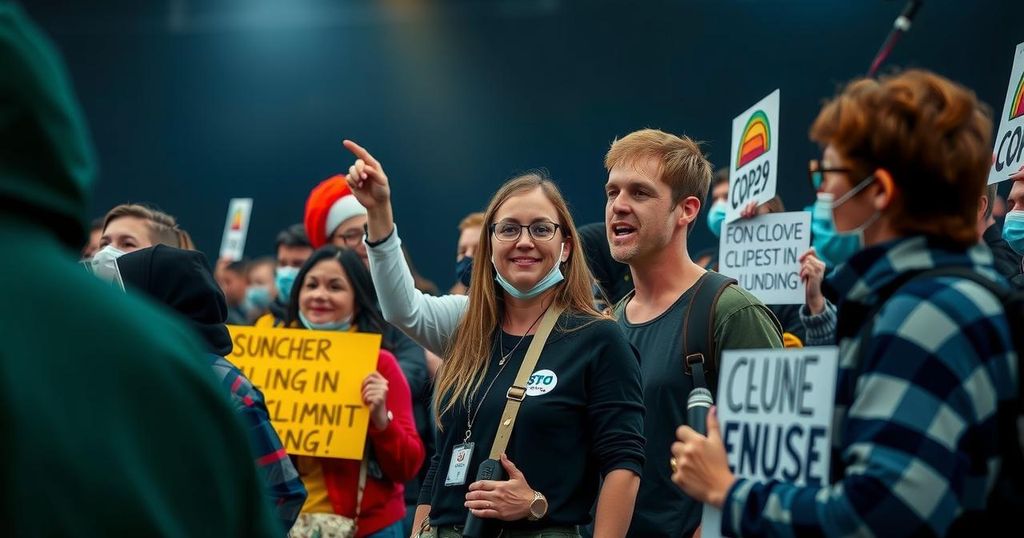At COP29, refugee activists demanded increased funding and support to combat the challenges posed by climate change, as highlighted by Grace Dorong and the recent UNHCR report. Many displaced individuals are in areas vulnerable to climate impacts, yet insufficient funding reaches them. UNHCR’s collaboration with the Green Climate Fund seeks to address this disparity, while the newly formed coalition, Refugees for Climate Action, aims to amplify refugee voices in climate discussions.
Refugee activists attending COP29 in Azerbaijan emphasized the pressing need for increased funding and support to address the multifaceted threats posed by the climate crisis. Grace Dorong, a former refugee from South Sudan, articulated the dire conditions that forcibly displaced individuals face, stating, “No matter how hard we try to build the lives we want for ourselves, the fight gets harder with each passing day because of climate change.” The new UNHCR report highlights that a significant portion of displaced individuals are situated in areas highly susceptible to climate hazards. Climate shocks, which continue to intensify, are forcing many displaced persons to relocate multiple times, diminishing hopes of returning to their original homes as more regions become increasingly uninhabitable. Filippo Grandi, the UN High Commissioner for Refugees, underscored the tangible impacts of climate change on vulnerable populations, stating, “For people like Grace, this is not theoretical; this is an everyday reality that dramatically impacts their lives.” Despite their vulnerability, refugees and the communities hosting them are often omitted from climate financing intended for adaptation purposes, with only 2% of such funding allocated to extremely fragile countries. Grandi remarked on this disparity, calling it “a profound injustice.” In a promising development, UNHCR has signed a Memorandum of Understanding with the Green Climate Fund to improve climate finance access for fragile and conflict-affected communities. Additionally, a new coalition, Refugees for Climate Action, emerged at COP29, with representatives from various countries advocating for the inclusion of displaced persons in climate discussions. This coalition was launched with the aim of amplifying the voices of refugee activists in the climate dialogue. Participants, including actor and Goodwill Ambassador Theo James, highlighted the dire situations faced by refugees as they struggle against the compounded adversities of conflict and climate change. Consequently, both Okot and James reaffirmed their commitment to ensuring refugees are actively included in climate dialogues and funding decisions, laying claim to their rightful place in advocating for climate justice.
The climate crisis is increasingly threatening the lives of refugees and displaced communities, many of whom are situated in regions that are highly vulnerable to environmental hazards. At COP29, leaders and delegates were prompted to reconsider climate financing strategies that currently disproportionately favor middle-income, high-emitting countries. Given the growing evidence linking climate change, conflict, and forced displacement, the need for targeted support has never been more urgent. Organizations such as UNHCR and newly formed coalitions of refugee activists aim to address these critical issues and push for inclusive climate action.
The discussions at COP29 highlighted the urgent requirement for enhanced funding and support for refugees facing climate crises, as outlined clearly by activists and leaders alike. The UNHCR report underscores the intersection of climate change and forced displacement, revealing significant funding gaps that exacerbate the vulnerability of displaced populations. The formation of the Refugees for Climate Action coalition further emphasizes the commitment of refugees to advocate for their rights and inclusion in climate-related discussions, ultimately calling for a more equitable distribution of climate financing.
Original Source: www.unhcr.org







